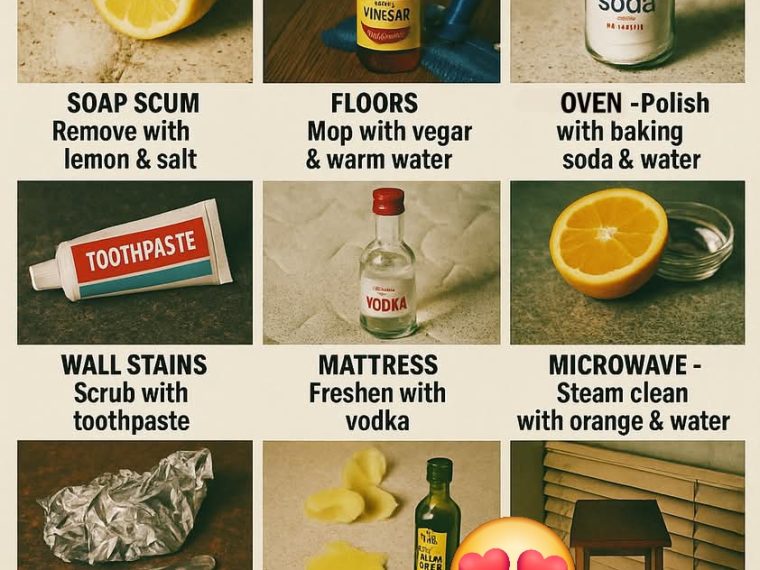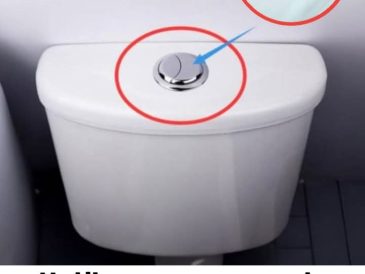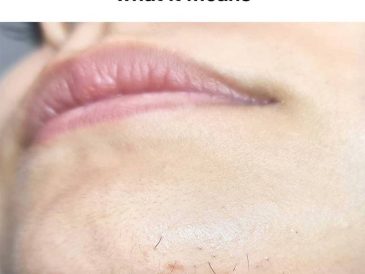Cleaning with Household Items: A Complete Guide to Natural and Effective Cleaning
Commercial cleaning products can be expensive and often contain harsh chemicals that aren’t always necessary for effective cleaning. Fortunately, many everyday household items can be used to clean your home safely, effectively, and affordably. This guide covers how to clean various parts of your home using common items like vinegar, baking soda, lemon, salt, and more.
1. All-Purpose Cleaner
Ingredients:
- 1 part white vinegar
- 1 part water
- Optional: a few drops of essential oil for scent
How to Use:
Mix in a spray bottle. This solution works well on countertops, glass, bathroom surfaces, and more. Avoid using vinegar on natural stone (like granite or marble).
2. Baking Soda: The Gentle Abrasive
Best Uses:
- Scrubbing sinks, bathtubs, and stovetops
- Deodorizing carpets, shoes, or garbage cans
- Cleaning grout
How to Use:
Sprinkle baking soda directly on surfaces or mix with water to form a paste. For deodorizing, let it sit for 15–30 minutes before vacuuming.
3. Lemon: Natural Degreaser and Brightener
Best Uses:
- Cutting boards (disinfecting and deodorizing)
- Microwaves (steam clean)
- Faucets and sinks (shine and remove hard water stains)
How to Use:
Cut a lemon in half and use it directly to scrub surfaces. For microwaves, put lemon slices in a bowl of water and microwave for 3 minutes, then wipe clean.
4. Salt: Scouring and Absorbing
Best Uses:
- Scrubbing cast iron pans
- Removing rust
- Absorbing spills on carpets
How to Use:
Mix salt with lemon juice or vinegar to make a paste for rust. To clean cast iron, scrub with coarse salt and a bit of oil.
5. Hydrogen Peroxide: Disinfecting Power
Best Uses:
- Cleaning toilets
- Disinfecting cutting boards
- Whitening grout
How to Use:
Pour hydrogen peroxide into a spray bottle and apply directly. Let it sit for a few minutes before wiping. Always store it in a dark bottle to preserve potency.
6. Olive Oil: Polish and Protect
Best Uses:
- Polishing wood furniture
- Conditioning leather
- Buffing stainless steel
How to Use:
Mix 2 parts olive oil with 1 part lemon juice or vinegar. Apply a small amount to a soft cloth and buff surfaces.
7. Cornstarch: Absorber and Polisher
Best Uses:
- Cleaning windows
- Polishing furniture
- Lifting grease stains from fabric
How to Use:
Mix cornstarch with water for a streak-free glass cleaner. Sprinkle on fabric to absorb oil stains before vacuuming.
8. Toothpaste: Small Surface Miracle Worker
Best Uses:
- Polishing silver
- Cleaning sneaker soles
- Removing crayon from walls
How to Use:
Use non-gel white toothpaste and a soft cloth or brush. Apply, scrub gently, and wipe clean.
9. Club Soda: Spot and Shine Helper
Best Uses:
- Removing carpet stains
- Cleaning glass
- Shining jewelry
How to Use:
Pour directly onto the stain or use as a final rinse for a shine boost.
10. Dish Soap: Versatile Grease Cutter
Best Uses:
- Degreasing kitchen surfaces
- Cleaning floors
- Washing windows (with vinegar)
How to Use:
Mix a few drops in warm water for mopping or combine with vinegar for glass cleaning.
Final Tips for Natural Cleaning:
- Label your mixtures: Always mark homemade cleaners with ingredients and dates.
- Test surfaces: Try your solution on a small area first to avoid damage.
- Store safely: Keep homemade and natural cleaners out of reach of children and pets.
Conclusion
With a few basic pantry items, you can clean almost every area of your home without the need for synthetic chemicals. Not only do these solutions save money, but they also create a healthier environment for your family. Start small and experiment with combinations that work best for your needs!





